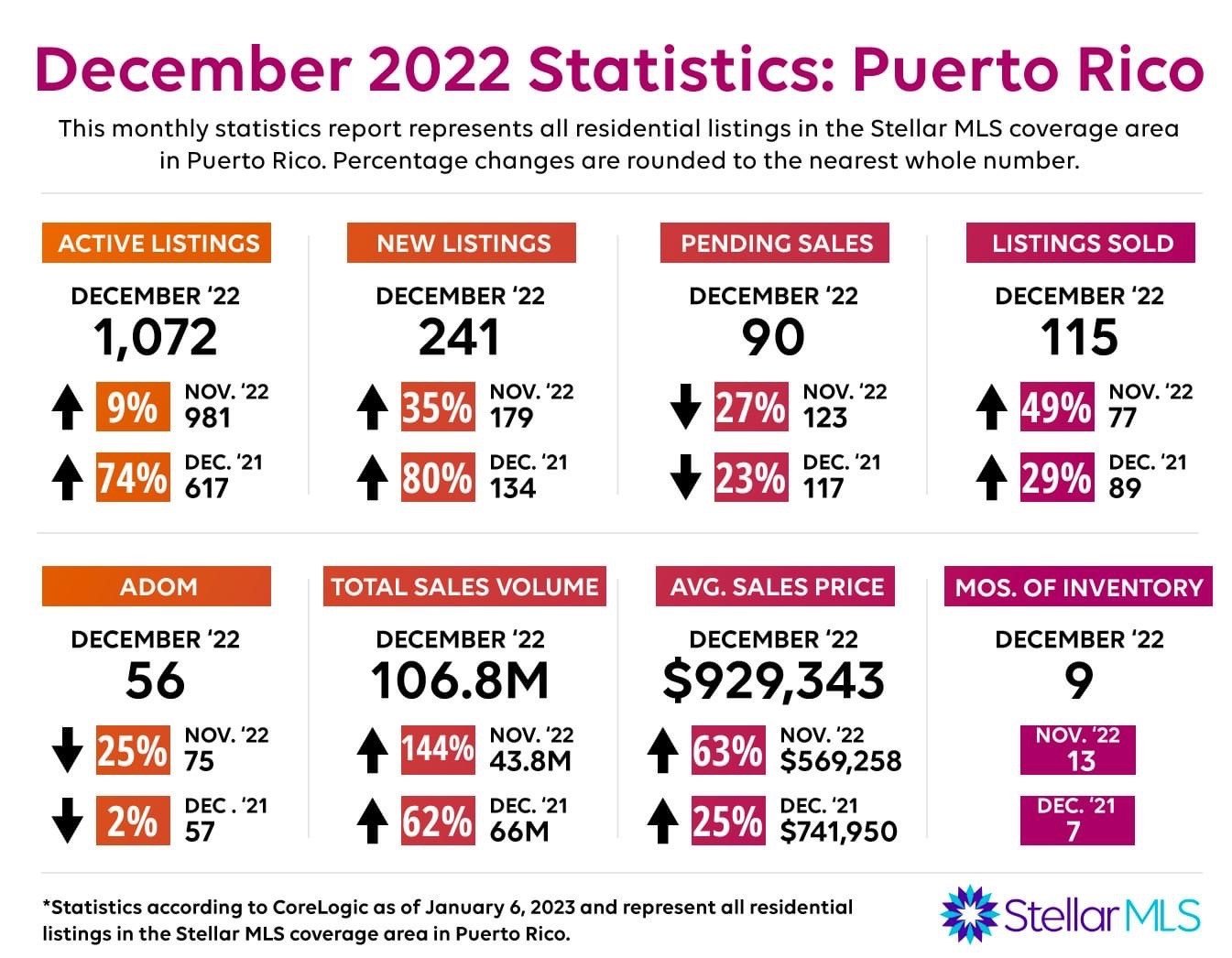The December 2022 MLS statistics for the Puerto Rico residential real estate market have been released. The inventory of available houses for sale was higher than December 2021, and the average sales price was up 25%. Pending sales decreased, while the months of inventory increased.
